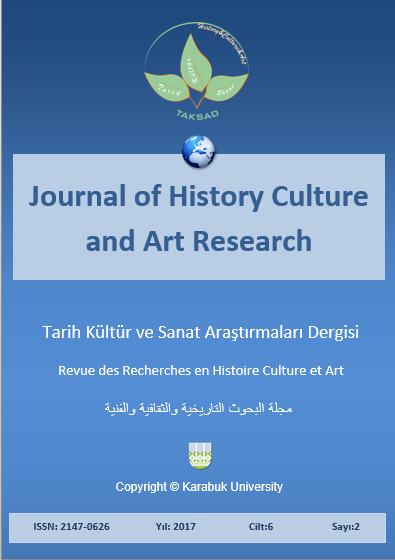The Spirituality and Wholeness in Education
DOI:
https://doi.org/10.7596/taksad.v6i2.692Keywords:
Holistic Education, Wholeness, Spirituality, Learning and Teaching.Abstract
The modern materialistic worldview has influenced educational institutions to emphasize more on inculcating students with skills and knowledge to the neglect of the students’ values and virtues. Consequently, education is a commodity, shaped according to the market. Education, influenced by the market, neglects a comprehensive approach and students’ intellectual, physical and cultural needs. Market’s preference for the technical and natural sciences contributed towards the creation of the mechanical conception of education. The market also influenced the institutions of higher learning to neglect the role of humanities and social sciences. The humanity is also at the break of the ecological, nuclear, chemical and biological crisis, terrorism, moral degeneration, and there is increasing disregard for culture, tradition, and values. These challenges raised questions about outcomes of modern education. Since such education could not balance and fulfill students’ material, intellectual and cultural needs; therefore, this paper examines how the holistic learning and teaching can pave the way towards the 21st-century education model.
References
Al-Attas, S.N.M. (1993). Islam and Secularism. Kuala Lumpur: International Institute of Islamic Thought and Civilization (ISTAC).
Apple, W. Michale (1983). Education and Power. London: Routledge & Kegan Paul.
Beare, H. & Slaughter, R. (1993). Education for the Twenty-First Century. London and New York: Routledge.
Cajete, G. (1994). Look to the Mountain: An Ecology of Indigenous Education. Kivaki Press.
Childs, G. (1991). Steiner Education in Theory and Practice. Edinburgh: Floris Books.
Crisp, R. (2000). Aristotle’s Nicomachean Ethics. Cambridge: Cambridge University Press.
Edwards, C.; Gandini, L. & G. Forman (Eds). (1998). The Hundred Languages of Children: The Reggio Emilia Approach-Advanced Reflections. London: Ablex Publishing Company.
Forbes, S. (2003). Holistic Education: An Analysis of Its Ideas and Nature. Brandon: Foundation for Educational Renewal.
Gardner, H. (1999). Intelligence Reframed. Multiple Intelligences for the 21st Century. New York: Basic Books.
Grace, D. (1989). “Education: Commodity or Public Good”, British Journal of Educational Studies, 37: 207-11.
Harrison M. Laura & Mather C. Peter (2015). Alternative Solutions to Higher Education’s Challenges: An Appreciative Approach to Reform. New York and London: Routledge.
Miller, J. (1996). The Holistic Curriculum. Toronto: OISE Press.
Miller, R. (1997). What Are Schools For? Holistic Education in American Culture, 3rd Edition. Brandon: Holistic Education Press.
Mitchell, Robert (2005). Nurturing the Souls of Our Children: Education and the Culture of Democracy. Bloomington: AuthorHouse Press.
Moor Thomas (2012). “Educating for the Soul.” In Miller P. John, Et. al. (Eds). Holistic Learning and Spirituality in Education: Breaking New Ground. Albany: State University of New York Press.
Mulalic, Almasa& Obralic, Nudzejma (2016). “The Relationship between Motivation Components and Preferred Learning Components among Students at International University of Sarajevo.” Epiphany: Journal of Transdisciplinary Studies. 9(1): 75-83.
Orr, D. (1992). Ecological Literacy Education and the Transition to a Postmodern World. Albany: State University of New York Press.
Palmer, P. (1993). To Know As We Are Known: Education as a Spiritual Journey. San Francisco: Harper San Francisco.
Pike, G., & D. Selby. (1988). Global Teacher Global Learner. London: Hodder & Stoughton.
Ricci, Carlo & Pritscher P. Conrad (2015). Holistic Pedagogy: The Self and Quality Willed Learning. Springer International Publishing.
Riley-Taylor, E. (2002). Ecology, Spirituality & Education: Curriculum for Relational Knowing. New York: Pete Lang.
Seligman E. Martin, et.al. (2009). “Positive Education: Positive Psychology and Classroom Interventions.” Oxford Review Education. 35(3): 293-311.
Sloan Douglas (2012). “Education and the Modern Assault on the Human Being.” In Miller P. John, Et. al. (Eds). Holistic Learning and Spirituality in Education: Breaking New Ground. Albany: State University of New York Press.
Stephen, M. (1991). Tao Te Ching. New York: Harper Collins Publishers.
Vasic, Nebojsa (2016). “The Third Way.” In Mulalic Muhidin, et. al. Education, Culture and Identity: New Trends and Challenges in Today’s Europe. Sarajevo: International University of Sarajevo.
Downloads
Published
How to Cite
Issue
Section
License
All papers licensed under Creative Commons 4.0 CC-BY.- Share — copy and redistribute the material in any medium or format
- Adapt — remix, transform, and build upon the material for any purpose, even commercially.
Under the following terms:
Attribution — You must give appropriate credit, provide a link to the license, and indicate if changes were made. You may do so in any reasonable manner, but not in any way that suggests the licensor endorses you or your use.
- No additional restrictions — You may not apply legal terms or technological measures that legally restrict others from doing anything the license permits.







